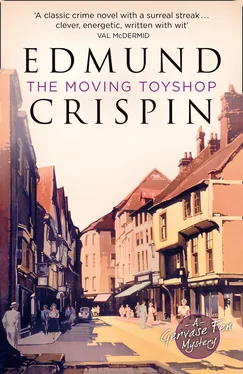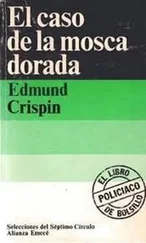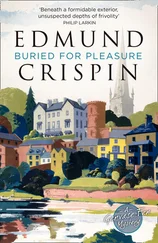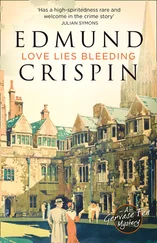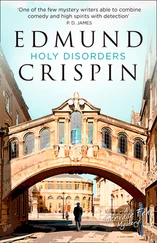‘Yes, yes.’ Mr Spode held up his hand, like one trying to stop a bus. ‘Of course, you’re very well known indeed. Yes.’ He coughed nervously. ‘But unhappily that doesn’t mean that many people buy your books. The public is quite uncultured, and the firm isn’t so rich that we can afford—’
‘I’m going on a holiday, and I need money .’ Cadogan waved away a mosquito which was circling round his head.
‘Yes, of course. But surely…some more dance lyrics?’
‘Let me inform you, my dear Erwin’ – here Cadogan tapped his publisher monitorily on the chest – ‘that I’ve been held up for two months over a dance lyric because I can’t think of a rhyme for “British”…’
‘“Skittish,”’ suggested Mr Spode feebly.
Cadogan gazed at him contemptuously. ‘Besides which,’ he pursued. ‘I am sick and tired of earning my living from dance lyrics. I may have an aged publisher to support’ – he tapped Mr Spode again on the chest – ‘but there are limits.’
Mr Spode wiped his face with a handkerchief. His profile was almost a pure semicircle – the brow high, and receding towards his bald head, the nose curving inward in a hook, and the chin nestling back, weak and pitiful, into his neck.
‘Perhaps,’ he ventured, ‘twenty-five pounds…?’
‘Twenty-five pounds! Twenty-five pounds!’ Cadogan waggled his revolver menacingly. ‘How can I have a holiday on twenty-five pounds? I’m getting stale, my good Erwin. I’m sick to death of St John’s Wood. I have no fresh ideas. I need a change of scene – new people, excitement adventures. Like the later Wordsworth. I’m living on my spiritual capital.’
‘The later Wordsworth.’ Mr Spode giggled, and then, suspecting he had committed an impropriety, fell abruptly silent.
But Cadogan pursued his homiletic regardless. ‘I crave, in fact, for romance. That is why I’m learning to shoot with a revolver. That is also why I shall probably shoot you with it, if you don’t give me fifty pounds.’ Mr Spode stepped back alarmedly. ‘I’m becoming a vegetable. I’m growing old before my time. The gods themselves grew old, when Freia was snatched from tending the golden apples. You, my dear Erwin, should be financing a luxurious holiday for me, instead of quibbling in this paltry fashion over fifty pounds.’
‘Perhaps you’d like to stay with me for a few days at Caxton’s Folly?’
‘Can you give me adventure, excitement, lovely women?’
‘These picaresque fancies,’ said Mr Spode. ‘Of course, there’s my wife…’ He would not have been wholly unwilling to sacrifice his wife to the regeneration of an eminent poet, or, for the matter of that, to anyone for any reason. Elsie could be very trying at times. ‘Then,’ he proceeded hopefully, ‘there’s this American lecture tour…’
‘I’ve told you, Erwin, that that must not be mentioned again. I can’t lecture, in any case.’ Cadogan began to stride up and down the lawn. Mr Spode noticed sadly that a small bald patch was beginning to show in his close-cropped, dark hair. ‘I have no wish to lecture. I decline to lecture. It’s not America I want; it’s Poictesme or Logres. I repeat – I am getting old and stale. I act with calculation. I take heed for the morrow. This morning I caught myself paying a bill as soon as it came in. This must all be stopped. In another age I should have devoured the living hearts of children to bring back my lost youth. As it is’ – he stopped by Mr Spode and slapped him on the back with such enthusiasm that the unfortunate man nearly fell over – ‘I shall go to Oxford.’
‘Oxford. Ah.’ Mr Spode recovered himself. He was glad of this temporary reprieve from the embarrassing claims of business. ‘A very good idea. I sometimes regret moving my business into Town, even after a year. One can’t have lived there as long as I did without feeling occasionally homesick.’ Complacently he patted the rather doggy petunia waistcoat which corseted his plump little form, as though this sentiment somehow redounded to his own credit.
‘And well you may be.’ Cadogan wrinkled his patrician features into a grimace of great severity. ‘Oxford, flower of cities all. Or was that London? It doesn’t matter, anyway.’
Mr Spode scratched the tip of his nose dubiously.
‘Oxford,’ Cadogan went on rhapsodically, ‘city of dream-spires, cuckoo-echoing, bell-swarmed (to the point of distraction), charmed with larks, racked with rooks, and rounded with rivers. Have you ever thought how much of Hopkins’s genius consisted of putting things in the wrong order? Oxford – nursery of blooming youth. No, that was Cambridge, but it makes no odds. Of course’ – Cadogan waved his revolver didactically beneath Mr Spode’s horrified eyes – ‘I hated it when I was up there as an undergraduate: I found it mean, childish, petty, and immature. But I shall forget all that. I shall return with an eyeful of retrospective dampness and a mouth sentimentally agape. For all of which’ – his tone became accusing – ‘I shall need money.’ Mr Spode’s heart sank. ‘Fifty pounds.’
Mr Spode coughed. ‘I really don’t think…’
‘Nag Nutling. Oust Orlick,’ said Cadogan with enthusiasm. He seized Mr Spode by the arm. ‘We’ll go inside and talk it over with a drink to steady our nerves. God, I will pack, and take a train, and get me to Oxford once again…’
They talked it over. Mr Spode was rather susceptible to alcohol, and he loathed arguing about money. When at last he went away, the counterfoil of his cheque-book showed the sum of fifty pounds, payee Richard Cadogan Esquire. So the poet got the better of that affair, as anyone not wholly blinded by prejudice would have expected.
When his publisher had departed, Cadogan piled some things into a case, issued peremptory instructions to his servant, and set out for Oxford without delay, despite the fact that it was already half past eight in the evening. Since he could not afford to keep a car, he travelled on the Tube to Paddington, and there, after consuming several pints of beer in the bar, boarded an Oxford-bound train.
It was not a fast train, but he did not mind. He was happy in the fact that for a while he was escaping the worrying and loathsome incursion of middle-age, the dullness of his life in St John’s Wood, the boredom of literary parties, the inane chatter of acquaintances. Despite his literary fame, he had led a lonely and, it sometimes seemed to him, inhuman existence. Of course, he was not sanguine enough to believe, in his heart of hearts, that this holiday, its pleasures and vexations, would be unlike any other he had ever had. But he was pleased to find that he was not so far gone in wisdom and disillusion as to be wholly immune to the sweet lures of change and novelty. Fand still beckoned to him from the white combs of the ocean; beyond the distant mountains there still lay the rose-beds of the Hesperides, and the flower-maidens singing in Klingor’s enchanted garden. So he laughed cheerfully to himself, at which his travelling companions regarded him warily, and, when the compartment emptied, sang and conducted imaginary orchestras.
At Didcot a porter walked down beside the train, shouting, ‘All change!’ So he got out. It was now nearly midnight, but there was a pale moon with a few ragged clouds drifting over it. After some inquiry he learned that there would be a connection for Oxford shortly. A few other passengers were held up in the same way as himself. They tramped up and down the platform, talking in low voices, as though they were in a church, or huddled in the wooden seats. Cadogan sat on a pile of mail-bags until a porter came and turned him off. The night was warm and very quiet.
After rather a long time a train drew in at the platform and they all got into it, but the porters called out ‘All change!’ again, so they climbed out and watched the lights being extinguished, carriage by carriage. Cadogan asked a porter what time the Oxford train was expected, and the porter referred him to another porter. This authority, discovered drinking tea in the buffet, said without any apparent sense of outrage that there were no more trains to Oxford that night. The statement provoked some opposition from a third porter, who maintained that the 11.53 had not come in yet, but the porter drinking tea pointed out that as from yesterday the 11.53 was not going to come in any more, ever again. He banged his fist on the table with frequency and force to emphasize this point. The third porter remained unconvinced. A small, sleepy-eyed boy was, however, dispatched to consult with the driver of the train that had just arrived, and he confirmed that there were no more trains to Oxford that night. Moreover, the boy added unhelpfully, all the buses had stopped running two hours ago.
Читать дальше
